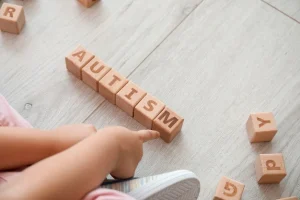Conquer Pronunciation Challenges: Tips for Adults
By Wellness Hub
Last Updated: September 20, 2024
Have you ever wondered why sometimes people ask you to repeat yourself? Or maybe you’ve noticed puzzled looks when you speak. It’s not uncommon, and often, the root cause can be traced back to how we pronounce our words. Pronunciation challenges in adults are more common than you might think, affecting both native and non-native speakers alike. Whether it’s the influence of a regional accent or learning English as a second language, the way we articulate words plays a crucial role in our ability to communicate effectively.
Understanding Pronunciation Challenges
Pronunciation—the art of making sound in the right tone—is fundamental to clear and effective communication. It’s all about how we form and deliver words correctly and understandably. But why is good pronunciation so crucial? Simply put, it ensures that our message is transmitted without distortion, allowing for smooth and efficient conversations, whether it’s in a personal or a professional setting.
Many adults face pronunciation challenges, which can stem from a variety of factors. Common errors include consonant substitutions, where one sound is mistakenly replaced with another. For example, mixing up ‘b’ and ‘p’ can turn ‘pad’ into ‘bad’. Another frequent issue is incorrect stress—placing emphasis on the wrong syllable or word in a sentence, which can entirely change the intended meaning. Imagine the confusion between saying ‘REcord’ (a noun) versus ‘reCORD’ (a verb).
Also read: Speech Sound Disorders: Causes, Treatment and Strategies
Causes of Pronunciation Difficulties
Understanding why pronunciation challenges arise can be just as crucial as knowing how to correct them. Let’s explore some common factors that contribute to pronunciation difficulties in adults.
1. Mislearning from Childhood:
Often, the foundation of our speech is laid early in life. If pronunciation errors aren’t corrected during childhood, they can solidify and persist into adulthood. Whether it’s a regional accent that omits certain sounds or simply incorrect mimicry of words, these early habits can be hard to break.
2. Second Language Learning Challenges:
For many, English is not their first language. Learning to pronounce a new language can be a daunting task, especially if it’s significantly different from one’s mother tongue. Adults face unique challenges here, as they may have to override years of speaking habits formed in another language.
3. Influence of Mother Tongue (Mother Tongue Interference):
This refers to the tendency of first language sounds, intonations, and rhythms to influence the way one speaks a second language. For example, a native Hindi speaker might have difficulty with certain English sounds that don’t exist in Hindi, leading to pronunciation errors.
4. Neuromotor Issues:
Conditions like dysarthria, which affect the motor control of speech, can also cause pronunciation difficulties. These are less common but can have a significant impact on clarity and speech sound production, requiring specialized therapeutic intervention.
Read more: Adult Speech Therapy: What Is It and How It Can Help
Practical Tips and Techniques to Improve Pronunciation
Improving pronunciation might seem daunting at first, but with the right strategies, it’s entirely achievable. Here are some practical tips and techniques that can help adults enhance their pronunciation skills:
1. Recording and Self-Review:
One of the most effective ways to recognize pronunciation errors is to hear yourself speak. Use your smartphone or any recording device to capture your speech, then listen back to identify areas for improvement. This self-review process allows you to hear the differences between your pronunciation and the standard pronunciation, making it easier to correct mistakes.
2. Practicing with Stress and Intonation:
English, like many languages, relies heavily on correct stress and intonation. Practice emphasizing different words in sentences and notice how the meaning changes. For example, saying “I never said she stole my money” implies something different from “I never said she stole my money.” Play around with these variations to master the subtleties of stress and intonation.
3. Phonetic Exercises Focusing on Troublesome Sounds:
Certain sounds may be more challenging depending on your first language. Identify which sounds are troublesome for you—like the difference between ‘th’ and ‘s’—and practice them using phonetic exercises. Repeat troublesome sounds in words, sentences, and even tongue twisters to improve.
Phonetic Exercises Table
| Sound | Common Error | Example Word | Practice Phrase |
|---|---|---|---|
| Th | S | Think | Think through themes. |
| R | W | Right | Read red roses rapidly. |
| V | W | Very | View very vibrant violets. |
| L | R | Light | Lucy likes light lemon cakes. |
| Z | S | Zoo | Zebras zigzag in the zoo. |
| D | T | Dog | Don’t delay the dancing dogs. |
| Sh | S | Ship | She should shop at the shore. |
| Ch | J | Choose | Choose cheap chocolate chips. |
| G | K | Go | Goats go grazing in the garden. |
| F | P | Find | Four fluffy feathers fell. |
Leveraging Professional Help
While the self-help tips provided can make a significant difference, sometimes professional guidance is necessary to tackle more persistent pronunciation challenges. This is where speech-language therapists come into play. These professionals specialize in diagnosing and treating communication disorders, including pronunciation difficulties.
1. Role of Speech-Language Therapists:
Speech-language therapists assess your speech patterns, identify the specific pronunciation issues, and understand the underlying causes—whether they’re physiological, neurological, or based on learned behaviors. Their expertise allows them to develop personalized strategies that target your specific needs.
2. Assessment and Personalized Treatment Planning:
The process begins with a thorough assessment to gauge your current pronunciation abilities and pinpoint areas needing improvement. This evaluation might include various speech exercises and possibly recording your speech to analyze it more accurately. Based on the assessment results, the therapist will create a tailored treatment plan that includes detailed practice routines, corrective exercises, and regular feedback sessions.
3. Support from Wellness Hub:
At Wellness Hub, we understand the importance of clear communication. That’s why we offer expert consultation and tailored therapy sessions designed to help adults overcome their pronunciation difficulties. Our team of experienced speech-language therapists is committed to providing you with the support and tools necessary for success. Through personalized attention and evidence-based practices, we help our clients achieve clearer, more confident speech.
Everyday Strategies for Better Pronunciation
Improving your pronunciation doesn’t always require formal training; there are several effective strategies you can incorporate into your daily routine. These everyday practices can help you refine your pronunciation skills, ensuring you are understood clearly and confidently.
1. Mindful Speaking and Listening Practices:
Start by becoming more aware of how you speak and listen. Slow down your speech to better articulate each word, and actively listen to others, particularly noting how they pronounce words differently. This mindfulness will help you catch and correct your own pronunciation errors more effectively.
2. Engaging with Native Speakers:
If possible, try to engage in conversations with native speakers. This exposure is invaluable because it allows you to hear and mimic the natural rhythms and sounds of the language. Don’t be shy about asking for feedback; most people are happy to help if you explain that you are working to improve your pronunciation.
3. Regular Practice and Feedback Loops:
Consistency is key when it comes to pronunciation improvement. Set aside specific times each day for pronunciation practice, using resources like online pronunciation videos, apps, or podcasts. Record yourself regularly to track your progress and identify areas that need further improvement.
Timeline to Improvement
| Time Frame | Expected Progress | Additional Goals |
|---|---|---|
| 1 Month | Noticeable reduction in common errors | Begin to catch and self-correct errors in speech |
| 3 Months | Improved stress and intonation | Use intonation to more effectively convey emotion |
| 6 Months | Clear and confident pronunciation in conversations | Engage in more complex conversations effortlessly |
| 12 Months | Mastery of challenging sounds and fluent natural speech | Handle professional and social speaking demands confidently |
Conclusion
Improving your pronunciation helps you communicate better and connect more easily with others. We’ve looked at useful tips and expert advice to help you speak more clearly. Regular practice is key—try to practice every day, listen carefully to others, and keep working on the sounds that are tough for you.
At Wellness Hub, we’re here to support you on this journey. Our skilled speech therapists are ready to help with personalized advice and sessions tailored just for you. No matter what challenges you face with pronunciation, we have the resources to help you improve. Thank you for letting us help you speak more clearly and confidently.
Frequently Asked Questions:
1. What are common pronunciation challenges that adults face?
Adults often struggle with issues like consonant substitutions, incorrect stress on words or sentences, and difficulties with specific sounds that are not present in their native language. These challenges can lead to misunderstandings in both social and professional settings.
2. How can I improve my pronunciation on my own?
Improving pronunciation independently can be achieved through regular practice, such as recording your own speech and playing it back to identify errors, practicing phonetic exercises, and using apps that provide feedback on pronunciation. Mindful listening to native speakers and mimicking their pronunciation can also be highly effective.
3. Why is it important to work on pronunciation?
Good pronunciation enhances clear communication, which is essential for effective interaction in personal, educational, and professional contexts. It boosts confidence and reduces misunderstandings, making conversations more productive and enjoyable.
4. Can a speech-language therapist really help with adult pronunciation issues?
Yes, speech-language therapists are trained to diagnose and treat speech issues, including pronunciation problems. They provide personalized assessments and develop tailored treatment plans that address specific needs, which can significantly improve an adult’s pronunciation skills.
5. How often should I practice pronunciation exercises?
Consistency is key in pronunciation improvement. Practicing a few minutes daily can be more effective than longer, less frequent sessions. Incorporating practice into your daily routine, like during a commute or through regular speaking engagements, can help reinforce learning.
6. Are there any tools or apps recommended for improving pronunciation?
There are several apps available that are designed to help with pronunciation, such as Duolingo, Rosetta Stone, and Pronuncian. These tools offer exercises, games, and instant feedback to help you practice and improve your pronunciation skills effectively.
7. What strategies can I use to remember correct pronunciation?
Using mnemonic devices, practicing with rhymes, and visualizing the word along with its pronunciation can help cement the correct forms in your memory. Additionally, engaging regularly in conversations with native speakers and getting feedback can reinforce correct pronunciation habits.
8. What role does accent play in pronunciation difficulties?
Accents can significantly impact pronunciation, especially if you are speaking a language that is not your mother tongue. Each accent has its own set of phonetic nuances, which can lead to common mispronunciations when learning a new language. Understanding and adjusting to these nuances is key to mastering pronunciation in any language.
9. Is it too late to improve my pronunciation if I am already an adult?
It is never too late to improve your pronunciation. While children may absorb language skills more readily, adults possess the ability to apply more focused practice and understanding to the learning process. With the right techniques and consistent practice, adults can significantly enhance their pronunciation at any age.
10. How long does it typically take to see improvement in pronunciation?
The time it takes to see improvement in pronunciation can vary widely depending on factors such as the frequency of practice, the initial level of proficiency, and the specific challenges being addressed. Most people notice some improvement within a few weeks of regular practice, but substantial changes can take several months of consistent effort.
About the Author:
Anuradha Karanam
Speech-language pathologist (7+ years of experience)
Anuradha Karanam is a skilled speech-language pathologist with over 6 years of experience. Fluent in Tamil, Telugu, Hindi, and English, she specializes in parent counseling, speech sound disorders, fluency assessment, and speech-language evaluations. Anuradha excels at working with children with developmental disorders, offering creative and effective therapy programs. Currently at Wellness Hub, she holds a BASLP degree and is registered with the RCI (CRR No A85500). Her patience, ambition, and dedication make her a trusted expert in her field.
Book your Free Consultation Today
Parent/Caregiver Info:
Client’s Details:
* Error Message









